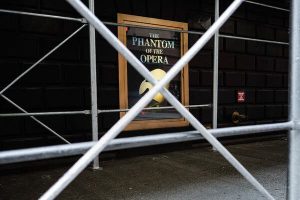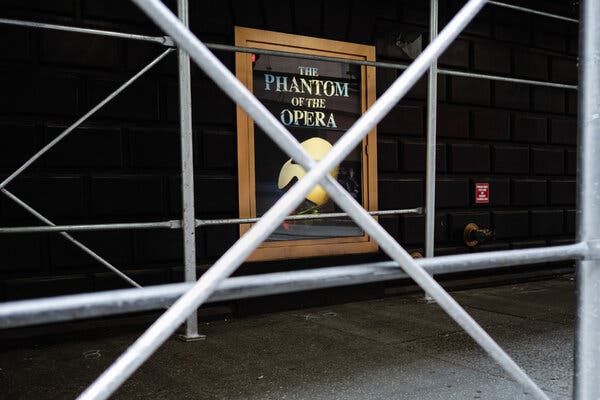Broadway Shutdown Impacts More Than Just the Theater Industry
Patrick Ritter
Trending Writer

On Friday, October 9th, the Broadway League announced that the Broadway theater industry would remain shut down until May 31, 2021. This would bring the shutdown length to 14 months since the start of the pandemic.
The League has made it clear that there is not enough information about the pandemic and public safety at hand to call for a definitive date of reopening, and the information will likely not be available by the Spring of 2021. So, the industry will remain closed until the end of May 2021.
As well as impacting the lives of those who work for the theater industry, several playwrights, producers, actors and directors faced devastation as shows such as “MJ,” “The Music Man,” “Flying Over Sunset,” “Caroline or Change,” “Plaza Suite,” “American Buffalo,” and “The Minutes” were all scheduled to open in the spring.
Many groups, like the Actors’ Equity Association, are demanding compensation for lack of work availability as well as asking lawmakers to schedule funding and loans to assist those in the performing arts business who are struggling due to public health concerns.
While the Broadway League is awaiting permission from Governor Cuomo to reopen the industry in New York City, the theater industry struggle is not limited to the Big Apple. The John F. Kennedy Center for the Performing Arts in Washington, D.C. has cancelled all events scheduled for 2020, and the Huntington Theatre Company in Boston has done the same for public health safety. Even performances in London are being cancelled due to public health concerns. Thus, the theater industry struggle is global, not just in New York where the namesake of the theater industry is located.
However, while the theater industry struggles as they rely on the decisions of health officials, the closure of the theater business is also affecting the infrastructure of the Theater District in Manhattan, particularly restaurants and bars once enjoyed by Broadway attendees who are now absent due to the pandemic.
Several business owners on Restaurant Row, a street of eateries, have built their businesses on theater audiences, and they began to reopen along with other businesses as state regulations loosened and small businesses became allowed to open with certain restrictions in place. However, these restrictions, such as strictly outdoor dining as well as 25% capacity indoor dining, are nothing compared to the tremendous loss of revenue these businesses are facing without the usual crowd of theatergoers making up a big chunk of that revenue.
However, while Restaurant Row is indeed struggling for business, business owners have begun to see a positive shift in clientele from tourists to now those who live in the local neighborhood, such as Nick Verses, owner of Bar Dough, an establishment on Restaurant Row in the Theater District.
“So we’re seeing a lot more locals in the area coming to discover Restaurant Row,” Verses said in an interview with Spectrum News. He, along with other establishments on Restaurant Row, will be relying on this local clientele until they can once again rely on the patronage of Broadway audiences.
While the theater business and the infrastructure impacted by it may be struggling, all hope is not lost for Broadway audiences. Since the success of Hamilton on Disney+, some streaming services are turning their attention towards Broadway so that fans of these shows can enjoy their favorite musicals from the safety of their own home. For example, Heidi Schreck, who wrote the 2017 play “What the Constitution Means to Me,” signed an exclusive partnership deal with Amazon to make theater content for streaming. Also, in response to the demand for at-home theater attendance, HBO announced that the David Byrne musical “American Utopia” would be available on their streaming platforms in move form, directed by Spike Lee.
In a world that is constantly seeing changes in circumstance and function, the theater district is no exception to the multitude of companies and industries who are all constantly looking for innovation and new ways to function. The theater industry shut down has impacted its audience, members, and small businesses, but with hardworking teams of health experts, the industry will hopefully get back on its feet by the end of the new shutdown date and begin rebuilding the culture we all know and love.
Contact Patrick at ritterpa@shu.edu

